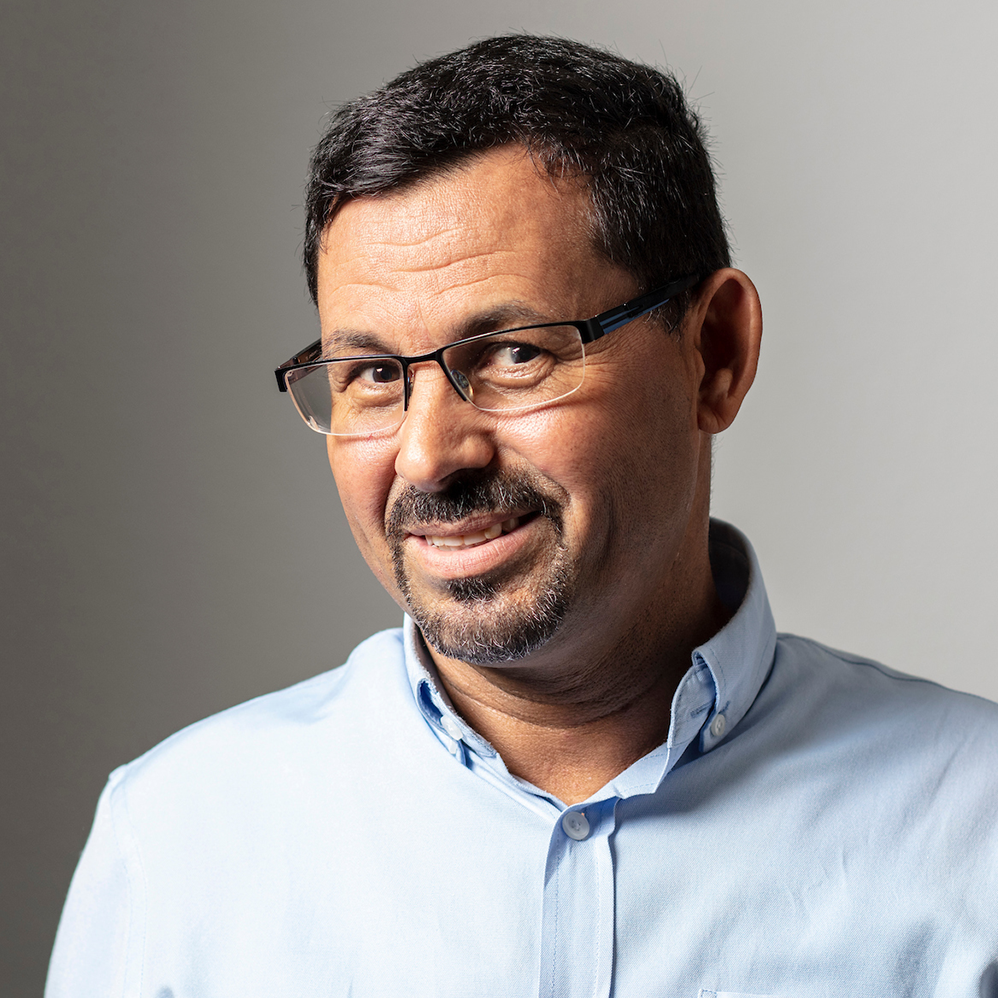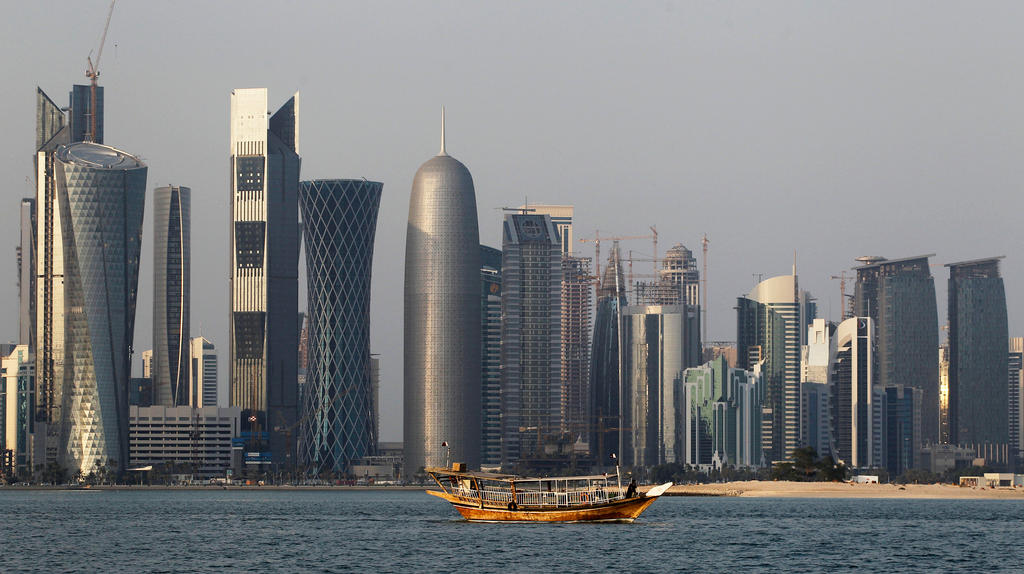‘Business as usual for Qatar’, says ambassador to Bern

Qatar has been subject to an economic and political blockade by its Middle East neighbours for a month, and the situation looks set to drag on further. The Qatari ambassador to Switzerland, Mubarak al Hajri, talks to swissinfo.ch about the crisis.
Saudi Arabia, UAE, Bahrain and Egypt cut links to Qatar on June 5, accusing the emirate of having links to terrorist groups. A list of demands to end the embargo include shutting down Qatar’s state-sponsored media group Al Jazeera and re-thinking its relationship with Iran.
Qatar is showing little sign of backing down, calling the demands illegal and unreasonable. Qatar has strong trade links with Switzerland, including direct investments in many Swiss firms by its Qatar Investment Authority sovereign wealth fund.
swissinfo.ch:It is known that Qatar has big investments in Switzerland. And Switzerland has significant economic interests in Qatar. To what extent has the trade exchange between both countries been affected by the recent developments in the Gulf?
Mubarak al Hajri: The trade exchange between both countries has not been impacted by what is happening. This hotel where we are now, namely the Schweizerhof in Bern, is one of the Qatari investments in Switzerland. We have a similar investment in Lausanne, which is the Royal Savoy Hotel. At the end of August, we will open the largest tourist project, not just in Switzerland but also at a Europe-wide level, which is Bürgenstock in Lucerne. Everything is proceeding as normal, and what is going on has no impact on our interests in Switzerland.
swissinfo.ch:What do you think about the results of the Garcia report on the conditions surrounding the awarding of the hosting of the 2022 World Cup to Qatar?
Mubarak al Hajri: Some sections of the report were published and taken out of context. But FIFA wised up to this and decided to publish the report in full. In the final analysis, it is in favour of Qatar and Russia too. This report stressed, without a shadow of a doubt, that the 2018 round would be held in Russia and the 2022 round would be held in Qatar, and that this was a done deal and there was no disagreement over it. The report also underlined that the Russian dossier was flawless and so was the Qatari one.
swissinfo.ch:A number of international human rights organisations have called on Qatar to improve the conditions of foreign workers. Could you brief us on the most important reforms adopted by Qatar in this regard?
Mubarak al Hajri: Qatar has issued many laws to protect this foreign labour. Several of the international committees visited the state of Qatar and noticed the progress that has been made in this regard. They were fully convinced that the conditions of workers in Qatar were on the right track. However, most companies operating in the projects related to the organisation of the 2022 World Cup are foreign companies and they are the ones who bring in labour from abroad.
These companies also take care of their accommodation and living conditions. That is why, the blame falls on these companies, rather than Qatar. But the Qatari government is trying to assist these companies in the improvement of the conditions of those workers.
swissinfo.ch:Since the outbreak of the current crisis, several countries have expressed their readiness to mediate between the two sides, mainly including Kuwait. Why there is no progress on this issue?
Mubarak al Hajri: For a start, we value the efforts made by his Highness the Emir of Kuwait. He is a man of initiatives and is respected by everyone. But the impossible demands placed in front of Qatar are the reason why there is a delay in finding a solution.
One of the points included in the demands put forward to us was the expulsion of the Revolutionary Guard from Qatar. We do not have a Revolutionary Guard in Qatar. Whoever has evidence to the opposite should bring it forward. I would say to them: Thank you, you have raised a point and we would like to know the whereabouts of this Revolutionary Guard. But what we do know is that the Revolutionary Guard is present in occupied Emirati islands where the Iranian flag is raised. There is indeed the Revolutionary Guard. Whoever placed these demands does not want a solution to the crisis.
swissinfo.ch:Qatari activists on social media websites have called on the supreme authorities in the state to hold a public referendum on these demands. Can the state of Qatar resort to holding a national referendum to impart a popular dimension on its choices?
Mubarak al Hajri: Regarding sovereign affairs, there cannot be a referendum and the state’s policy on them is clear. But on other issues the time may come when there is a need to consult the citizens. As for sovereign matters, everyone agrees on them, and no party can renounce them.
swissinfo.ch: Some observers compare the status of Qatar in the Middle East to the status of Switzerland in Europe, but they stop at the limited people’s participation in the decision-making process in Qatar. Can the current situation represent an opportunity to boost the opening-up and broadening of people’s participation, through the formation of an elected parliament in Qatar, for instance?
Mubarak al Hajri: The constitution, which was approved recently, stipulates the creation of an elected Shura council. The state is now in the process of preparing for the election of this council. On the other hand, if we compare Qatar with its neighbours, it exceeds them in all aspects of life, as attested to by the UN and all its agencies specialising in health, education or freedom of expression and opinion.
That is why Qatar is looked at with envy. Indeed, Qatar looks like Switzerland in terms of its small size, but Switzerland exists in an environment of democratic countries that believe in dialogue. But Qatar has been plagued with neighbours who do not believe in dialogue and seek to impose their views. As far as Qatar is concerned, this is rejected.

In compliance with the JTI standards
More: SWI swissinfo.ch certified by the Journalism Trust Initiative













You can find an overview of ongoing debates with our journalists here . Please join us!
If you want to start a conversation about a topic raised in this article or want to report factual errors, email us at english@swissinfo.ch.